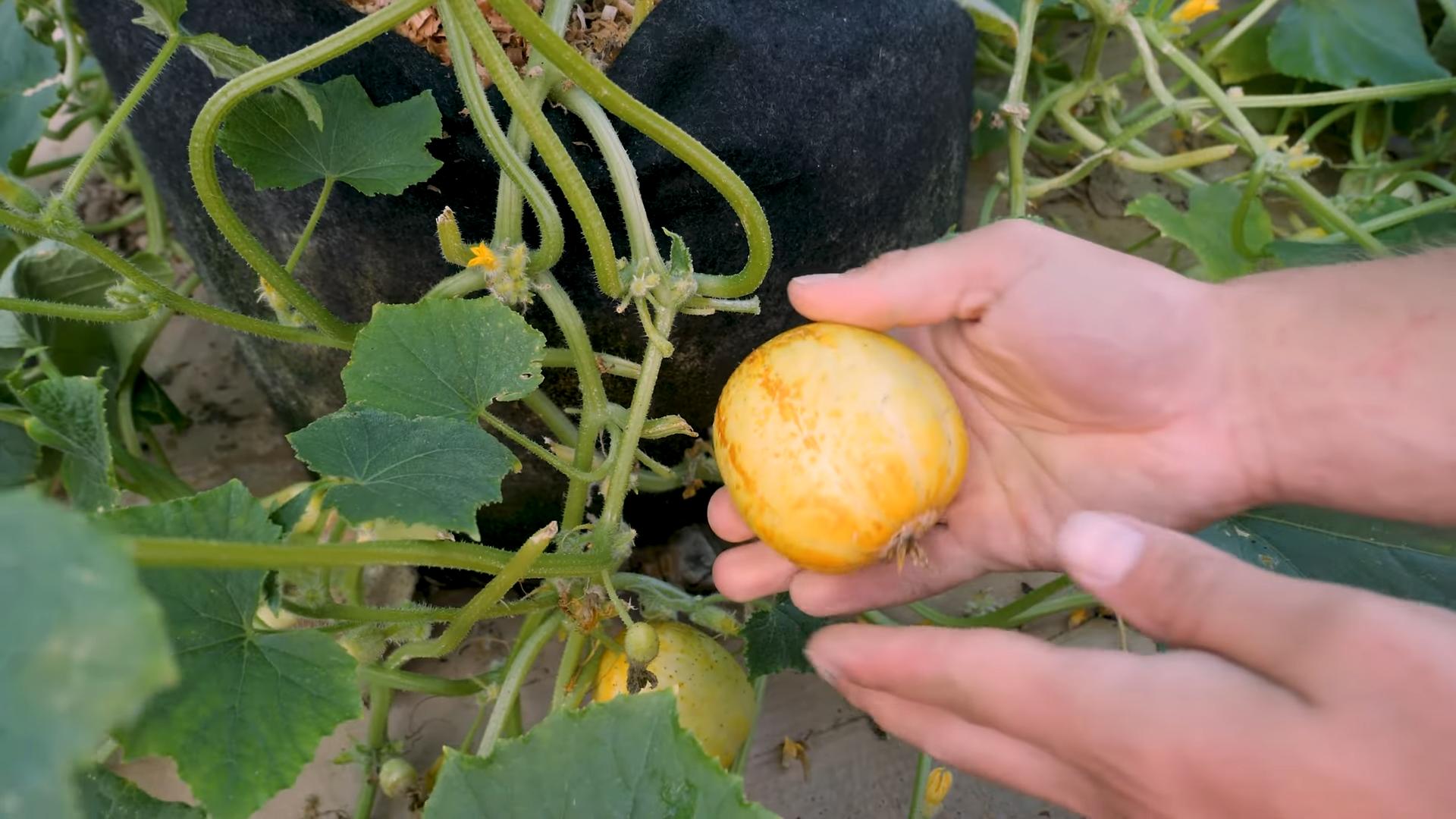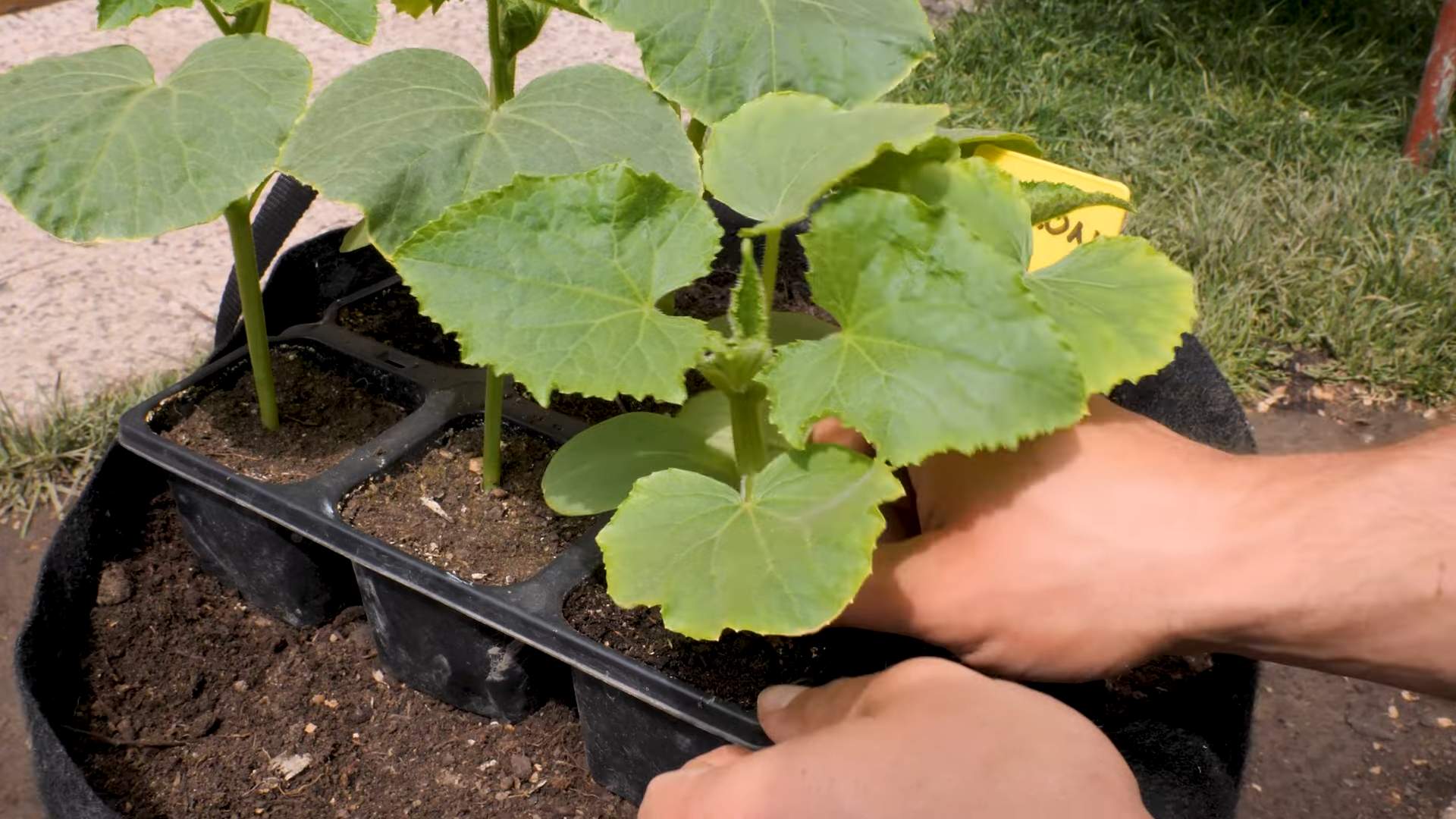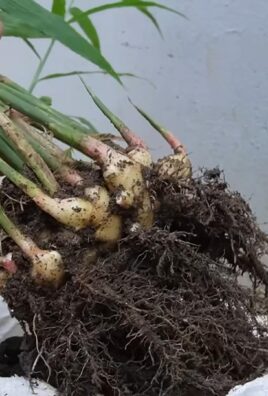Grow Lemon Cucumbers: Your Guide to Zesty Homegrown Goodness
Grow Lemon Cucumbers? Yes, you read that right! I’m thrilled to share my secrets for cultivating these delightfully unique and flavorful cucumbers right in your own backyard. Forget bland supermarket cucumbers; prepare for a burst of zesty sunshine with every bite of your homegrown harvest. This isn’t just about growing vegetables; it’s about connecting with nature, enjoying the satisfaction of nurturing something from seed to plate, and, of course, savoring the incredible taste of your own Grow Lemon Cucumbers.
The history of cucumbers stretches back millennia, with evidence suggesting cultivation in ancient India and Egypt. While the lemon cucumber variety is a relatively newer development, it carries on this rich legacy of providing a refreshing and versatile vegetable. But let’s be honest, buying cucumbers from the store can be a gamble. Sometimes they’re tasteless, sometimes they’re bruised, and you never really know what kind of journey they’ve been on before reaching your kitchen. That’s why mastering the art of growing your own Grow Lemon Cucumbers is so rewarding.
Why Grow Your Own?
Growing your own lemon cucumbers offers unparalleled control over the quality and taste. You’ll know exactly what’s gone into your vegetables – no pesticides, no questionable growing practices, just sunshine, water, and a little bit of your love. Plus, there’s something incredibly satisfying about harvesting your own produce, knowing you’ve nurtured it from a tiny seed to a vibrant, juicy cucumber. This DIY guide will walk you through every step, from planting to harvesting, ensuring you have a bountiful crop of these delightful, zesty cucumbers.
So, are you ready to embark on this exciting gardening adventure? Let’s get started and learn how to Grow Lemon Cucumbers!

Growing Lemon Cucumbers: A Step-by-Step Guide
Lemon cucumbers, with their bright yellow skin and mild flavor, are a delightful addition to any garden. They’re relatively easy to grow, even for beginners. Here’s my guide to successfully cultivating these unique cucumbers.
Phase 1: Planning and Preparation
- Choose the right location: Lemon cucumbers need at least six hours of sunlight per day. Select a sunny spot in your garden with well-drained soil. Avoid areas prone to strong winds, which can damage the delicate vines.
- Prepare the soil: Lemon cucumbers thrive in rich, fertile soil. Amend your soil with compost or well-rotted manure to improve drainage and nutrient content. A soil test can help determine if you need to add any specific nutrients.
- Select your seeds or seedlings: You can start lemon cucumber seeds indoors about 4-6 weeks before the last expected frost, or purchase seedlings from a local nursery. Starting indoors gives you a head start, but seedlings are convenient if you’re short on time.
- Gather your supplies: You’ll need seeds or seedlings, gardening gloves, a trowel or spade, a watering can, compost or manure, and possibly a trellis or support system for the vines.
Phase 2: Planting and Early Growth
- Planting seeds (if starting from seed): Sow seeds about ½ inch deep and 12-18 inches apart in rows 3-4 feet apart. Gently firm the soil around the seeds. Keep the soil consistently moist until germination.
- Planting seedlings: Dig holes slightly larger than the seedling’s root ball. Carefully remove the seedling from its container, gently loosen the roots, and place it in the hole. Backfill with soil, firming gently around the base of the plant. Water thoroughly.
- Watering: Water regularly, especially during dry spells. Aim for consistently moist soil, but avoid overwatering, which can lead to root rot. Water deeply and less frequently rather than shallowly and often.
- Weed control: Regularly remove weeds around your lemon cucumber plants. Weeds compete for nutrients and water, hindering the growth of your cucumbers.
- Fertilizing: After the first few weeks, you can apply a balanced fertilizer according to package directions. Avoid over-fertilizing, which can lead to excessive leaf growth at the expense of fruit production. A slow-release fertilizer is a good option.
Phase 3: Trellising and Support
- Install a trellis or support system: Lemon cucumber vines are vigorous growers and benefit from support. A trellis, fence, or even strong stakes can help keep the vines off the ground, improving air circulation and preventing diseases. You can train the vines to climb the support structure as they grow.
- Training the vines: Gently guide the vines up the trellis or support system. You can tie them loosely with garden twine or clips to keep them in place. Avoid tying them too tightly, which can restrict growth.
- Regular pruning: Prune away any dead or damaged leaves or stems. This improves air circulation and helps prevent diseases. You can also pinch off the growing tips of the main stems to encourage bushier growth and more fruit production. This is called pinching back.
Phase 4: Pest and Disease Management
- Monitor for pests: Regularly inspect your plants for signs of pests such as aphids, cucumber beetles, or spider mites. Early detection is crucial for effective pest control.
- Pest control methods: Use organic pest control methods whenever possible. This might include insecticidal soap, neem oil, or introducing beneficial insects like ladybugs. If organic methods are ineffective, you may need to resort to chemical pesticides, but always follow label instructions carefully.
- Disease prevention: Good air circulation and proper watering are key to preventing diseases. Avoid overhead watering, which can spread fungal diseases. Remove any diseased leaves or plants promptly to prevent the spread of infection.
- Mulching: Applying a layer of mulch around the base of the plants helps retain moisture, suppress weeds, and regulate soil temperature. Organic mulches like straw or shredded leaves are good choices.
Phase 5: Harvesting and Storage
- Harvesting: Lemon cucumbers are ready for harvest when they reach their mature size and color (bright yellow). They should feel firm to the touch. Harvest regularly to encourage continued production.
- Storage: Lemon cucumbers are best enjoyed fresh. Store them in the refrigerator for a few days. They don’t store well for extended periods.
- Seed saving (optional): If you want to save seeds for next year, select the best fruits from your plants. Let the fruits fully ripen on the vine until they are soft and slightly overripe. Remove the seeds, clean them, and allow them to dry completely before storing them in a cool, dry place.
Remember, patience and consistent care are key to a successful lemon cucumber harvest. Happy gardening!

Conclusion
So there you have it – a simple, yet incredibly effective method for growing plump, juicy lemon cucumbers right in your own backyard or even on your balcony! This DIY approach to growing lemon cucumbers offers a rewarding experience, allowing you to savor the fruits (or should we say, vegetables!) of your labor. The unique satisfaction of nurturing these plants from seed to harvest is unparalleled, and the taste of homegrown lemon cucumbers far surpasses anything you’ll find in the supermarket. This method eliminates the guesswork and expense associated with store-bought plants, empowering you to control the entire growing process and achieve optimal results. The ease of this technique, coupled with the delicious outcome, makes it a must-try for both seasoned gardeners and enthusiastic beginners alike. Beyond the simple satisfaction, you’ll be amazed at the vibrant flavor and refreshing crunch of your homegrown lemon cucumbers. They’re perfect for salads, sandwiches, pickles, or simply enjoyed as a healthy and delicious snack.
Don’t be afraid to experiment and adapt this method to your specific environment and preferences. Perhaps you’d like to try different companion plants to enhance growth and deter pests. Basil, for instance, is known to repel certain cucumber pests. You could also explore different varieties of lemon cucumbers, each offering unique characteristics in terms of size, shape, and flavor. Consider using different types of soil, amending it with compost or other organic matter to improve drainage and nutrient content. The possibilities are endless!
Growing your own lemon cucumbers is not just about the harvest; it’s about connecting with nature, learning about the growth cycle of plants, and experiencing the immense satisfaction of creating something beautiful and delicious. It’s a rewarding journey that will leave you feeling accomplished and proud of your gardening skills. So, what are you waiting for? Grab some seeds, gather your supplies, and embark on this exciting adventure of growing your own lemon cucumbers. We encourage you to share your experience with us! Post pictures of your thriving plants and delicious harvest on social media using #GrowLemonCucumbers and tag us – we’d love to see your success!
Remember, the key to successful Grow Lemon Cucumbers is consistent care, attention to detail, and a touch of patience. With a little effort, you’ll be enjoying the bounty of your own homegrown lemon cucumbers in no time. Happy growing!
Frequently Asked Questions
Q: What type of soil is best for growing lemon cucumbers?
Lemon cucumbers thrive in well-drained, fertile soil with a slightly acidic pH (around 6.0-6.8). Amend heavy clay soils with compost or other organic matter to improve drainage. Sandy soils may benefit from the addition of peat moss or other organic materials to retain moisture.
Q: How much sunlight do lemon cucumbers need?
Lemon cucumbers require at least six to eight hours of direct sunlight per day to grow optimally. Choose a location in your garden or on your balcony that receives ample sunlight throughout the day. Insufficient sunlight can lead to poor growth and reduced fruit production.
Q: How often should I water my lemon cucumbers?
Water your lemon cucumbers regularly, keeping the soil consistently moist but not waterlogged. The frequency of watering will depend on factors such as weather conditions, soil type, and the size of your plants. It’s generally recommended to water deeply and less frequently, encouraging deeper root growth. Check the soil moisture before watering; if the top inch or two feels dry, it’s time to water.
Q: What are some common pests and diseases that affect lemon cucumbers?
Lemon cucumbers can be susceptible to various pests and diseases, including aphids, cucumber beetles, powdery mildew, and downy mildew. Regularly inspect your plants for signs of infestation or disease. Consider using organic pest control methods such as insecticidal soap or neem oil to address pest problems. Good air circulation and proper spacing between plants can help prevent fungal diseases.
Q: When can I expect to harvest my lemon cucumbers?
The time it takes for lemon cucumbers to mature depends on the variety and growing conditions. Generally, you can expect to harvest your first cucumbers about 50-70 days after planting seeds. Harvest cucumbers when they reach the desired size and have a firm texture. Regular harvesting encourages continued fruit production.
Q: Can I grow lemon cucumbers in containers?
Yes, absolutely! Lemon cucumbers can be successfully grown in containers, making them a great option for balcony gardening or smaller spaces. Choose a container that is at least 12 inches in diameter and depth to allow for adequate root growth. Ensure the container has drainage holes to prevent waterlogging.
Q: What should I do with my harvested lemon cucumbers?
The possibilities are endless! Enjoy your homegrown lemon cucumbers in salads, sandwiches, and as a refreshing snack. They’re also delicious pickled or used in various recipes that call for cucumbers. Their unique lemon flavor adds a delightful twist to many dishes.
Q: What if my lemon cucumbers aren’t producing many fruits?
Several factors can affect fruit production, including insufficient sunlight, inadequate watering, nutrient deficiencies, or pest infestations. Review the growing conditions and address any potential issues. Ensure your plants are receiving enough sunlight, water, and nutrients. Check for pests and diseases and take appropriate action if necessary. Consider adding a balanced fertilizer to provide essential nutrients.





Leave a Comment